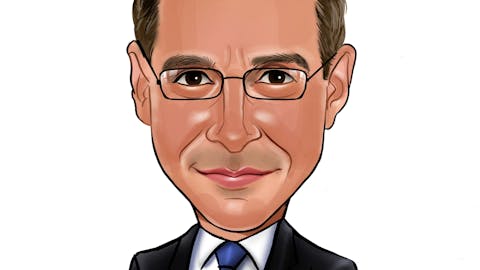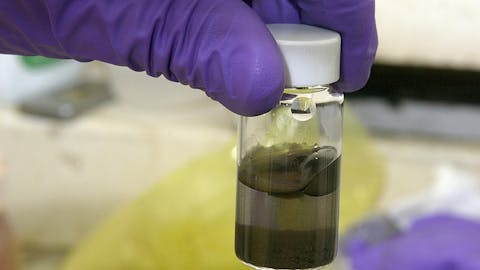After years of low interest rates, retail investors continue to starve for income while awaiting higher yields. The long-lasting low interest rate environment has forced most investors to channel their capital towards staples, utilities, telecom and REITs in the past several years, which has driven up their price-to-earnings ratios to quite high levels. Even though some investors might still hold onto their cash holdings in anticipation of higher yields, they might have to wait quite a while with interest rates being expected to remain at low levels for the foreseeable future. Nonetheless, retail investors might still find safe stocks with dividend yields above 2% that trade at relatively attractive price-to-earnings ratios. At Insider Monkey, we go through more than 700 filings submitted by top investment firms every quarter and gather data that gives us access to a wealth of collective knowledge based on these firm’s portfolio holdings. Therefore, this article will use that wealth of knowledge to determine whether or not AbbVie Inc (NYSE:ABBV), a company that offers a dividend yield above 4% and trades at attractive P/E multiples, makes for a good investment right now.
AbbVie Inc (NYSE:ABBV) has experienced a decrease in activity from the world’s largest hedge funds of late. AbbVie was in 70 hedge funds’ portfolios at the end of December. There were 78 hedge funds in our database with ABBV positions at the end of the previous quarter. At the end of this article we will also compare ABBV to other stocks including BP plc (ADR) (NYSE:BP), SAP AG (ADR) (NYSE:SAP), and Celgene Corporation (NASDAQ:CELG) to get a better sense of its popularity.
Follow Abbvie Inc. (NYSE:ABBV)
Follow Abbvie Inc. (NYSE:ABBV)
Receive real-time insider trading and news alerts
Today there are numerous gauges investors use to size up stocks. Two of the most innovative gauges are hedge fund and insider trading activity. We have shown that, historically, those who follow the top picks of the top hedge fund managers can outperform the market by a solid margin (see the details here).
AbbVie Inc (NYSE:ABBV) is a research-based biopharmaceutical company that focuses on the development of therapies for the treatment of complex and serious diseases. To be more detailed, the company’s portfolio of products are focused on treating conditions such as chronic autoimmune diseases in rheumatology, gastroenterology and dermatology; oncology, which includes blood cancers; virology, which includes hepatitis C (HCV) and human immunodeficiency virus (HIV), to name just a few. AbbVie’s wordwide net revenues reached $22.86 billion in 2015, up from $19.96 billion generated in 2014 and $18.79 billion in 2013. The top-line growth was mainly driven by the sustained strength of the company’s primary drug HUMIRA, which accounted for approximately 61% of total net revenue in 2015, the launch of AbbVie’s interferon-free HCV treatment, and revenue growth in other important products. It should be noted that AbbVie pays out an annual dividend of $2.28 per share, which denotes a current dividend yield of 4.06%. At the same time, the stock is priced at only 9.40-times expected earnings, significantly below the forward P/E multiple of 16.5 for the Drug Retail industry.
Now, let’s go over the latest action encompassing AbbVie Inc (NYSE:ABBV), as well as discuss what some hedge fund managers had to say about this company.
In third-quarter letter to investors, Larry Robbins’ Glenview Capital discussed the fund’s investments in four names in the pharma space, which also included AbbVie Inc (NYSE:ABBV). The billionaire investor discussed the pricing of healthcare products across the entire industry, pointing out a few examples in which companies have exaggerated in regards to their health care pricing actions. Larry Robbins said in the letter that “We scrubbed our companies’ pricing history and strongly believe that the growth in earnings amongst our portfolio holdings has been driven through volume growth and responsible aggregate pricing decisions”. However, the billionaire hedge fund manager points out that “In the heat of primary Presidential elections, candidates seized on this example of horrific corporate greed to paint all pharma companies as evil, and to vow if elected to bring these big evil pharma companies to their knees”. Glewnview Capital “did not see the potential that so much of pharma could auto-correlate around the fears of the bad acts of a few, or the political fears of several, to the extent that they did”.
Moving on to the hedge fund’s investment in AbbVie Inc (NYSE:ABBV), which was the fund’s largest position, Larry Robbins showed his discontent with FDA’s unexpected notice that AbbVie’s “Hepatitis-C drug needs to contain a warning label as a result of an elevated incidence of liver failure in patients, “most” of whom were already suffering from significant liver disease”. Additionally, the letter said the following:
“This random grenade to our largest holding was of course ill-timed, and the reaction of shareholders was accentuated by the cascading equity prices throughout all of healthcare and further fears of hedge fund and Glenview liquidation. This news is primarily disappointing to the affected patients and families and financially is disappointing to us, but is not material to our long-term thesis in AbbVie even under the worst case scenario, which would involve zero future sales of their current Hep-C compound.”
How are hedge funds trading AbbVie Inc (NYSE:ABBV)?
At Q4’s end, a total of 70 of the hedge funds tracked by Insider Monkey held long positions in this stock, a decline of 10% from the previous quarter. With hedge funds’ capital changing hands, there exists a select group of key hedge fund managers who were increasing their stakes significantly (or already accumulated large positions).
According to Insider Monkey’s hedge fund database, Julian Baker and Felix Baker’s Baker Bros. Advisors has the most valuable position in AbbVie Inc (NYSE:ABBV), worth close to $851.5 million, amounting to 7.1% of its total 13F portfolio. On Baker Bros. Advisors’s heels is Larry Robbins of Glenview Capital, with a $802.4 million position; the fund has 4.5% of its 13F portfolio invested in the stock. Some other hedge funds and institutional investors that are bullish consist of Neil Woodford’s Woodford Investment Management, Samuel Isaly’s OrbiMed Advisors and D.E. Shaw & Co. L.P., founded by David E. Shaw.
Seeing as AbbVie Inc (NYSE:ABBV) has witnessed declining sentiment from the smart money, it’s easy to see that there exists a select few hedgies that decided to sell off their entire stakes last quarter. Interestingly, Daniel S. Och’s OZ Management said goodbye to the biggest stake of the “upper crust” of funds monitored by Insider Monkey, totaling about $327.3 million in stock. Jacob Doft’s fund, Highline Capital Management, also sold off its stock, about $122.9 million worth. These moves are interesting, as total hedge fund interest fell by 8 funds last quarter.
The final page of this article reveals the hedge fund activity in other companies with market capitalizations close to the one of AbbVie.
Let’s go over hedge fund activity in other stocks – not necessarily in the same industry as AbbVie Inc (NYSE:ABBV) but similarly valued. We will take a look at BP plc (ADR) (NYSE:BP), SAP AG (ADR) (NYSE:SAP), Celgene Corporation (NASDAQ:CELG), and Eli Lilly & Co. (NYSE:LLY). This group of stocks’ market caps resemble ABBV’s market cap.
| Ticker | No of HFs with positions | Total Value of HF Positions (x1000) | Change in HF Position |
|---|---|---|---|
| BP | 32 | 749300 | -3 |
| SAP | 8 | 622237 | -3 |
| CELG | 64 | 2236703 | 2 |
| LLY | 54 | 2080790 | 7 |
As you can see these stocks had an average of 40 hedge funds with bullish positions and the average amount invested in these stocks was $1.42 billion. That figure was $5.29 billion in ABBV’s case. Celgene Corporation (NASDAQ:CELG) is the most popular stock in this table. On the other hand SAP AG (ADR) (NYSE:SAP) is the least popular one with only 8 bullish hedge fund positions. Compared to these stocks AbbVie Inc (NYSE:ABBV) is more popular among hedge funds. Considering that hedge funds are fond of this stock in relation to its market cap peers, it may be a good idea to analyze it in detail and potentially include it in your portfolio.
Disclosure: None




